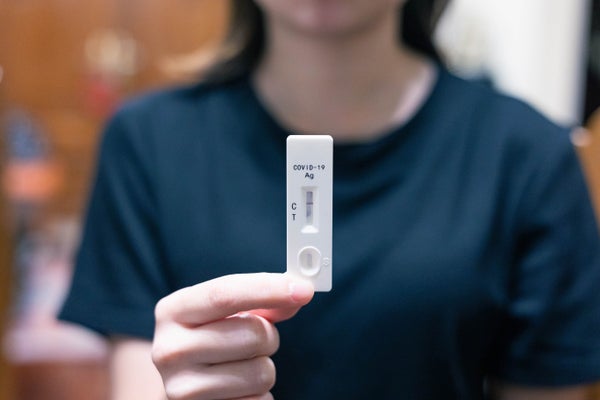COVID Rapid Tests Reliably Detect New Variants
Researchers who “test the tests” say that COVID rapid tests have kept up with new variants
Rapid tests are inexpensive, easy to use and give fast results, usually within 10 to 15 minutes.
Jackyenjoyphotography/Getty Images
The following essay is reprinted with permission from ![]() The Conversation, an online publication covering the latest research.
The Conversation, an online publication covering the latest research.
By September 2020, just six months after COVID-19 triggered shutdowns across the U.S., it was clear that SARS-CoV-2, the virus that causes COVID-19, had mutated from its original form.
The question quickly arose whether existing rapid antigen tests could detect newly emerging variants.
On supporting science journalism
If you’re enjoying this article, consider supporting our award-winning journalism by subscribing. By purchasing a subscription you are helping to ensure the future of impactful stories about the discoveries and ideas shaping our world today.
Using clinical samples obtained from diagnostic labs throughout the U.S. from 2020 to 2023, the National Institutes of Health, through its Variant Task Force, analyzed the effectiveness of more than 100 rapid antigen test kits on over 300 variants. The vast majority of the kits were able to detect new as well as prior previously known variants.
We are a team of researchers who have spent the past few years researching COVID-19 tests for their accuracy and performance. We understand why the public may still have questions about whether these tests are reliable, particularly as new variants continue to appear.
Here are answers to some of those questions:
Do these tests work?
There are two major types of tests for the detection of SARS-CoV-2.
The first, called a RT-PCR test, is more than 95% accurate for detecting the virus. These were the tests that most Americans were given at drive-through and walk-in testing sites early in the pandemic. The vast majority are…
Read the full article here







